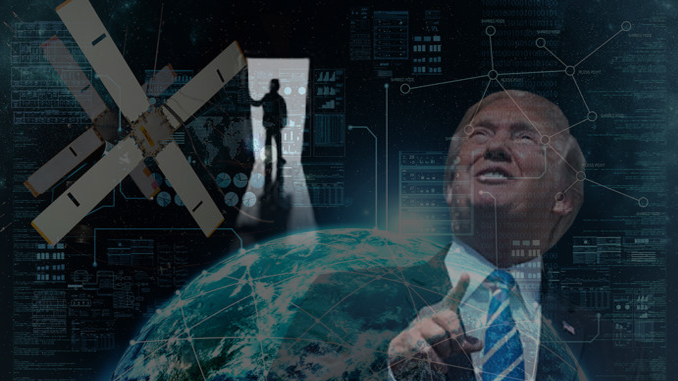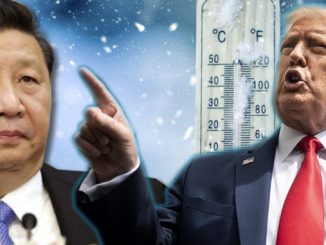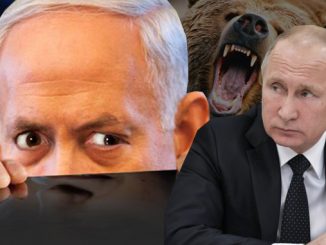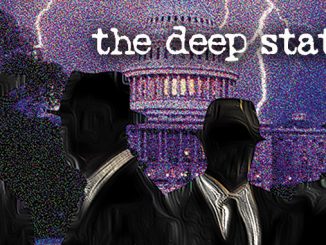
U.S. military didn’t tell the president about the extent of cyberwar waged against Russia.
By S.T. Patrick
We may already be in the midst of a New Cold War with Russia, and it may be one that has critical observers questioning how much power the military-industrial complex has already seized within President Donald Trump’s administration.
The New York Times recently published an anonymously sourced report that described New Cold War-level cyberwarfare being conducted by the U.S. against Russia’s infrastructure. The article, entitled “U.S. Escalates Attacks on Russia’s Power Grid” described the “placement of potentially crippling malware inside the Russian system at a depth and with an aggressiveness that had never been tried before.” Malware is a computer super-virus that can destroy systems completely.
That may just be its purpose, as the Times described that the malware could “plunge Russia into darkness or cripple its military.”
The American cyber-forces have stepped up their operations as of late, with one official quoted as saying, “We are doing things at a scale that we never contemplated a few years ago.” Is this an act of war against Russia? Columnist Caitlin Johnstone made an apt analogy in a recent column.
“Had a report been leaked to Russian media from anonymous Kremlin officials that Moscow was escalating its cyber-aggressions against America’s energy grid,” Johnstone wrote, “this would doubtless be labeled an act of war by the political/media class of the U.S. and its allies with demands for immediate retaliation.”
There was no news of a Trump announcement or response. Worse, the president wasn’t informed that implants—software code used for surveillance or attack—were used against the Russian grid.
As journalists David E. Sanger and Nicole Perlroth described: “Two administration officials said they believed Mr. Trump had not been briefed in any detail about the steps to place ‘implants’ . . . inside the Russian grid. . . . Pentagon and intelligence officials described broad hesitation to go into detail with Mr. Trump about operations against Russia for concern over his reaction—and the possibility that he might countermand it or discuss it with foreign officials, as he did in 2017 when he mentioned a sensitive operation in Syria to the Russian foreign minister. . . . Because the new law defines the actions in cyberspace as akin to traditional military activity on the ground, in the air or at sea, no such briefing would be necessary, they added.”
Trump wasn’t informed that cyberwarfare had been undertaken against Russia because it was too common; it was “traditional military activity.”
Since 2018, this has been perfectly, although scarily, legal. Last year, Congress passed a law which determined that clandestine military activity in cyberspace may proceed without presidential approval. In basic terms, the military-industrial complex and the national security establishment can conduct cyberwarfare not only without congressional approval, but also without presidential approval.

Trump finds himself in an impossible situation. If he supports the effort, Russia could see it as an act of war and could respond in-kind. If Trump scales back the cyberattacks against Russia, then he remains open to attacks that he is no more than a water boy for the Kremlin. Last year, the Times reported that the Pentagon pushed for the U.S. Nuclear Posture Review to include the potential for using nuclear weapons as a valid response against cyberattacks. Thus, this becomes all the more dangerous.
For now, Trump is doing the only thing he can do without currently seeming trapped by his own administration: He is claiming the story isn’t true. Of course, he could also be in the dark even further and could believe that it isn’t true when it is. But when the president is in the dark on information millions of Americans now know to be true, this is an even more dangerous country.
There are precedents, though not as overt. After President George W. Bush boarded the plane in Sarasota, Fla. shortly after the attacks of 9/11, the secure communications on Air Force One went dead for hours. For Bush to make a phone call, Air Force One had to ground and Bush had to use the regular means of communications. During that time, the entirety of post-attack foreign policy was being helmed at the White House by Vice President Dick Cheney. Bush reported the communications malfunctions on “60 Minutes” a year later, with no discussion of ulterior motives by anything or anyone that would now be called a Deep State.
If the president continues to deny the war-like actions attributed to the American military solely to save face and defend himself against embarrassment and charges of ineptitude, he is in a dangerous position of accepting the actions of which he is uninformed. Trump zoomed into office railing against a Deep State, a swamp he was going to drain. Yet, appointment by appointment, he has put himself in danger. Now we wait to see if Trump has an exit strategy for a personnel situation that he has caused, or if he will continue to drown.
S.T. Patrick holds degrees in both journalism and social studies education. He spent 10 years as an educator and now hosts the “Midnight Writer News Show.” His email is [email protected]. He is also an occasional contributor to TBR history magazine and the current managing editor of Deep Truth Journal (DTJ), a new conspiracy-focused publication available for sale at the AFP Online Store.




